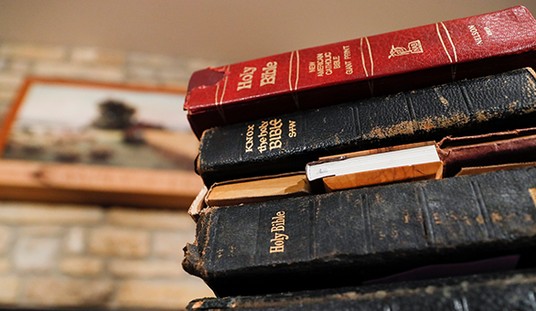When is a religion just a religion? When John Kennedy ran for President in 1960, his opponents argued that as a Roman Catholic, he might be torn by a dual loyalty to the United States and the Vatican. Although the Constitution requires that “no religious test shall ever be required as a qualification to any office or public trust under the United States”, where that religion has an earthly representative it potentially runs afoul of the oath of allegiance, where the citizen promises to “absolutely and entirely renounce and abjure all allegiance and fidelity to any foreign prince, potentate, state, or sovereignty”. The problem of dual loyalty is a little more widespread than is commonly imagined.
During John F. Kennedy’s campaign for and brief tenure as U.S. President, some opponents questioned whether a Roman Catholic President of the United States had a divided loyalty with respect to the Papacy and Vatican City. … During the English Reformation, many important British and Scottish figures such as Thomas More, Mary Stuart and Edmund Campion were tried and executed for their alleged double loyalty to the Papacy and infidelity to the Crown. … The Chinese Catholics have been forced by the government of the People’s Republic of China to substitute the Roman Catholic Church in China by the Chinese Patriotic Catholic Association.
Stephen Walt, who is a professor of political science at Harvard University, discussed what is perhaps the most famous case of a religious test. Jewry. He argued that American Jews did not have “divided loyalties”. They just had a serious conflict of interest.
One might start by remembering that the phrase “dual loyalty” has a regrettable and sordid history, given its origins as a nasty anti-Semitic canard in old Europe. Accusing anyone — and especially someone who is Jewish — of “dual loyalty” is bound to trigger a heated reaction, and for good reason. …
But what about getting directly involved as a government official, and in issue-areas where important interests are at stake? Instead of invoking phrases like “dual loyalty,” a rhetoric that immediately invokes connotations of betrayal (or even treason), I suggest we frame the issue as one of potential conflicts of interest. Simply put, is it in the best interest of the United States as a whole to place U.S. policy on key issues in the hands of people whose even-handedness is not beyond question, and especially when there is evidence that they feel a strong personal attachment to a foreign country with whom the United States may have important disagreements?
That strongly suggests that there are some jobs for which American Jews need not apply. So what are we to make of Herman Cain’s assertion (and Chris Christie’s rebuttal) that it is unwise to appoint a Muslim to high federal office. Cain makes the argument that Islam has a competing legal code to that of the United States: sharia law. He cites instances to support an assertion that there is an active campaign to supplant US law with sharia law. That it would seem, makes Islam a little bit more than just another religion; but an earthly power with earthly laws, princes and potentates. Christie on the other hand, believes that that the whole business is a nonsense. One senses that his instinct is to involve Muslims in the political process in the belief that they are better inside of it than outside. Both videos are shown below. You decide.
One other item left out of the debate are political ideologies which are operationally religions. These are called political religions, and under this category fall such belief systems as Nazism, Leninism, Kim Il Sungism and Japanese Emperor worship. One might add the more radical varieties of Environmental Ideology to this list as well.
Political religions have the following attributes. They suppress other religious beliefs through strident propaganda; they require absolute loyalty to the belief system and purge opponents. They externalize blame. Anything that goes wrong is someone else’s fault. They have a cult of personality or some other sacred object which they venerate, often unreasoningly.
There is obviously no “religious test” which prevents an environmentalist, communist or theoretically even a nazi from being appointed to public office. But should there be? And to return to the issue. What is a religion? And when can a man being considered for public office be reasonably accused of a likely “allegiance and fidelity to any foreign prince, potentate, state, or sovereignty”?
Storming the Castle at Amazon Kindle for $3.99
Tip Jar or Subscribe for $5










Join the conversation as a VIP Member